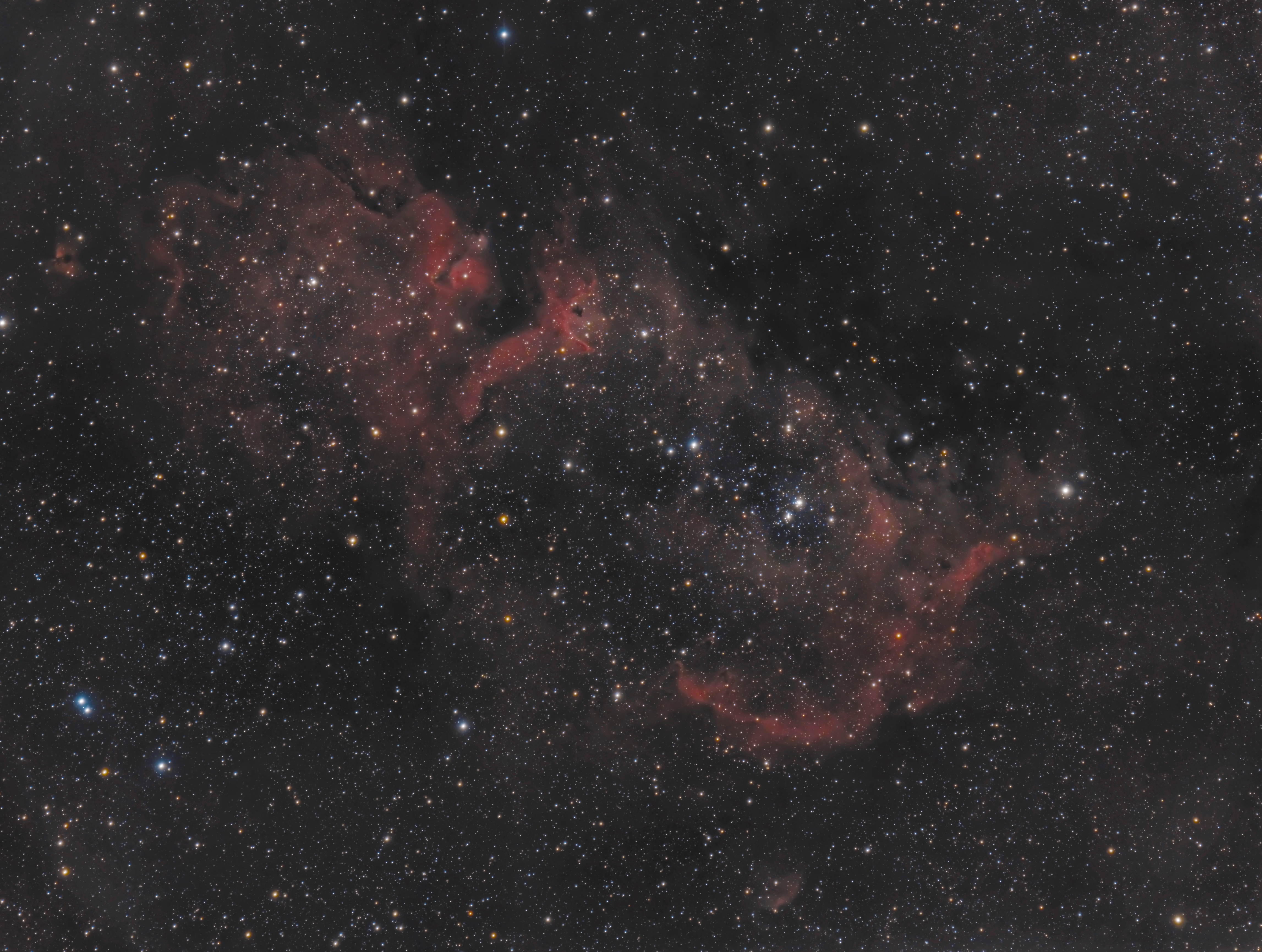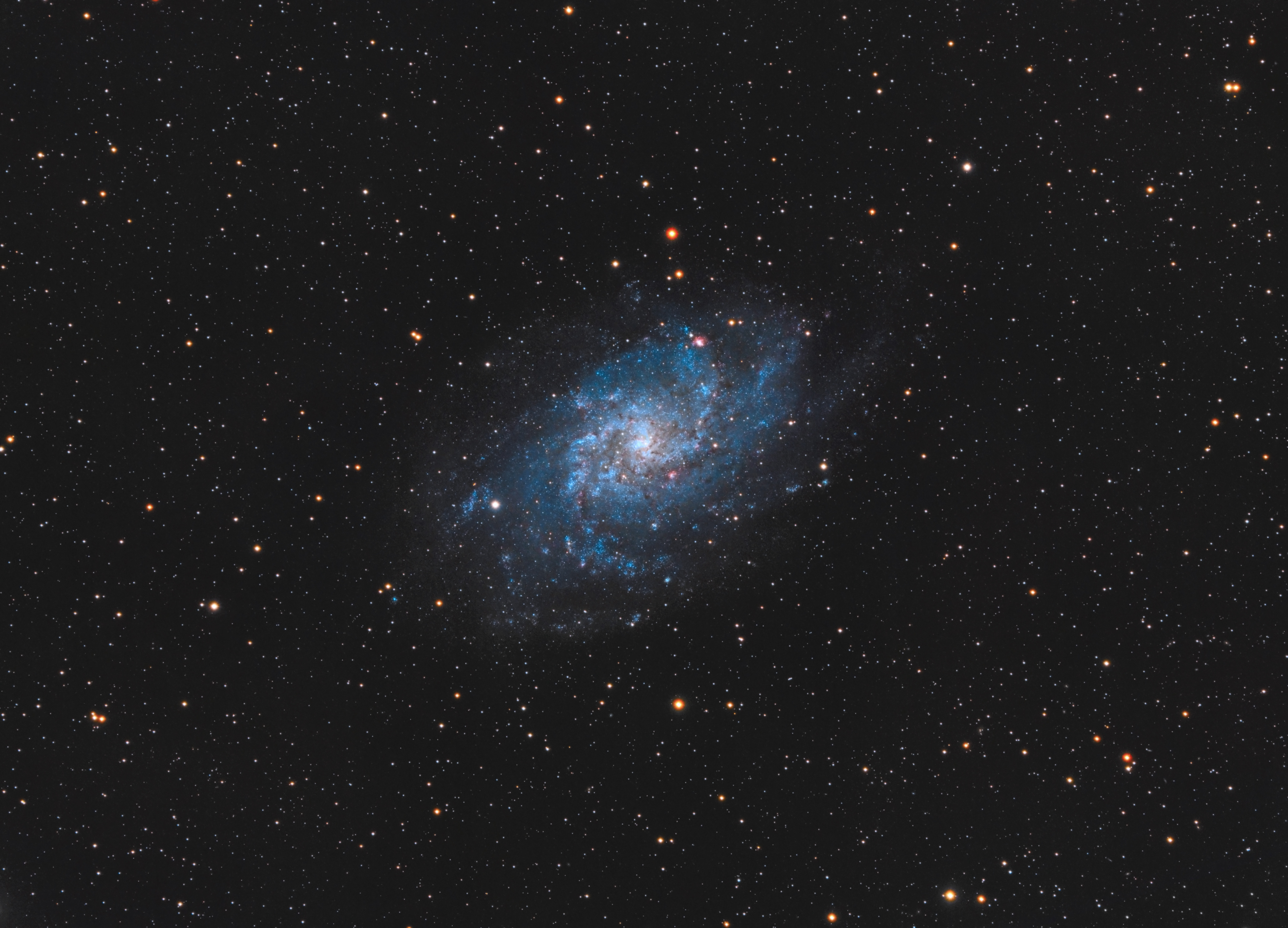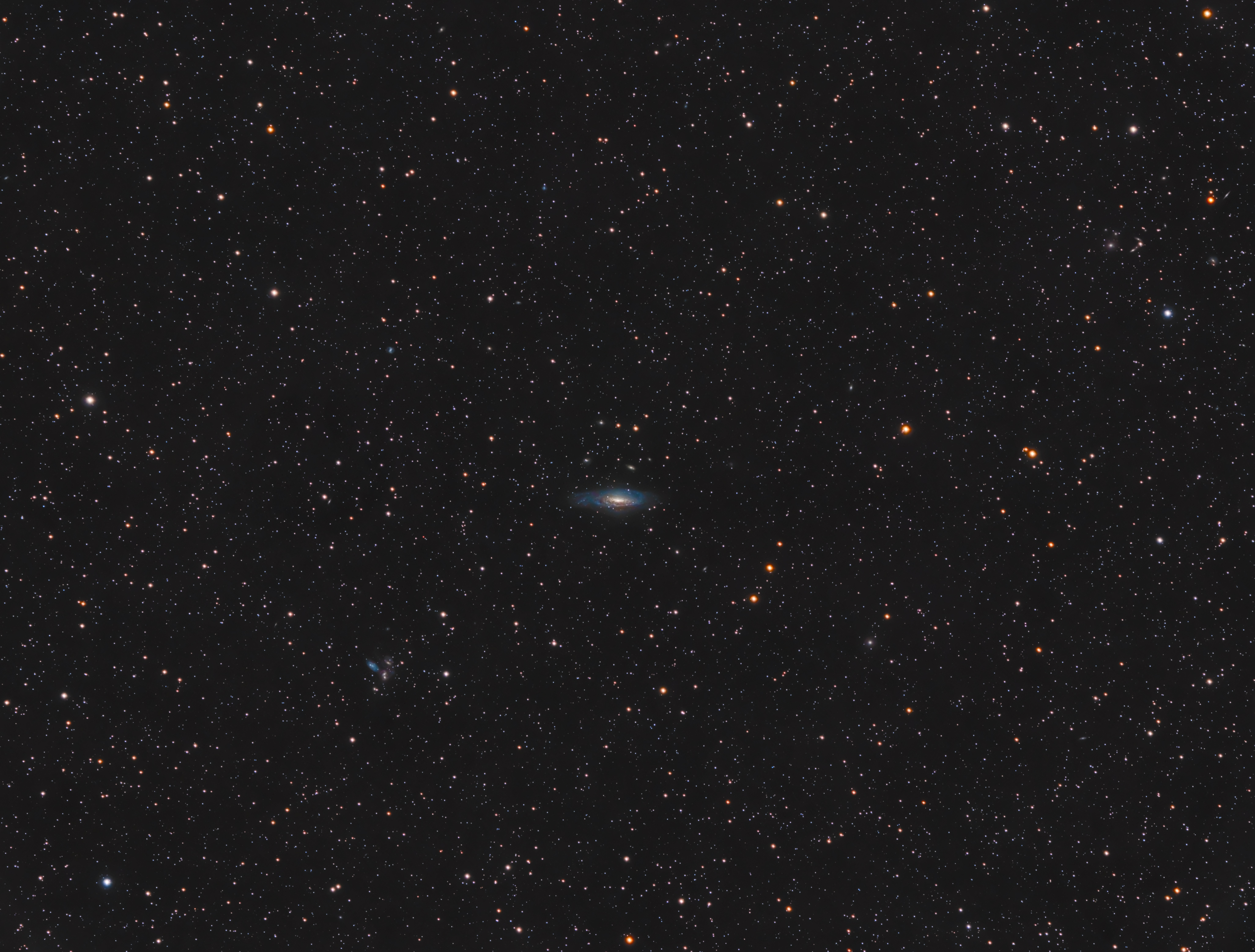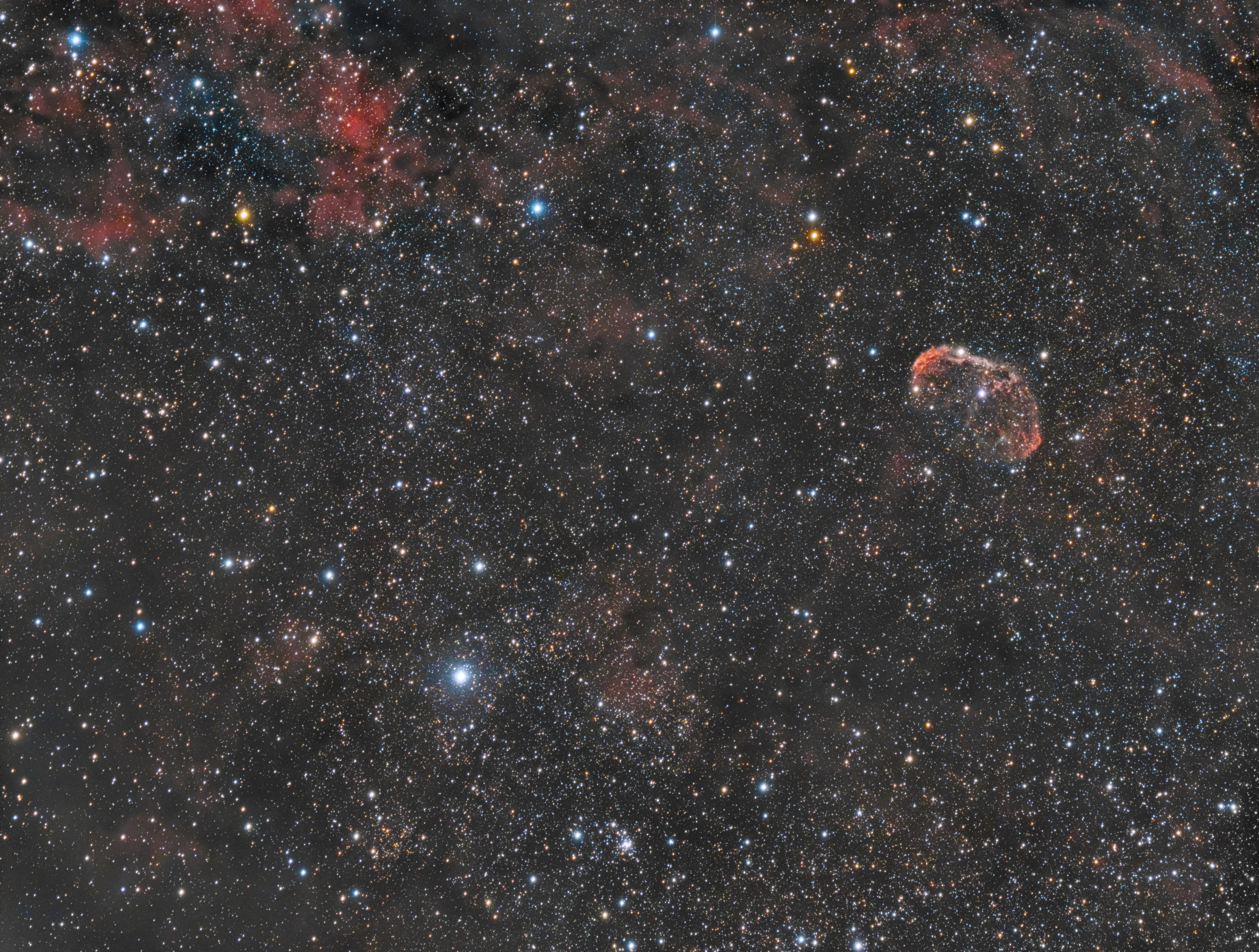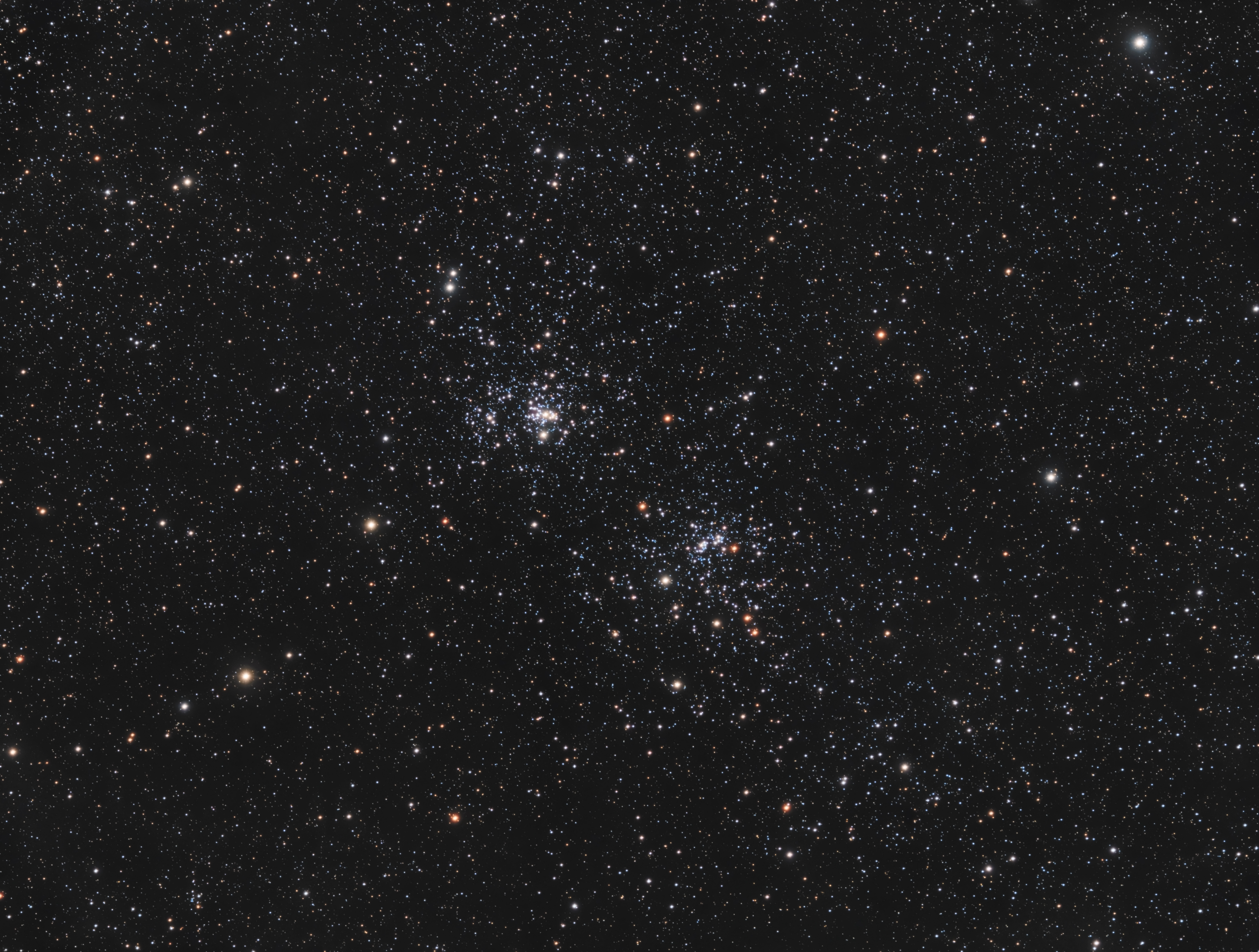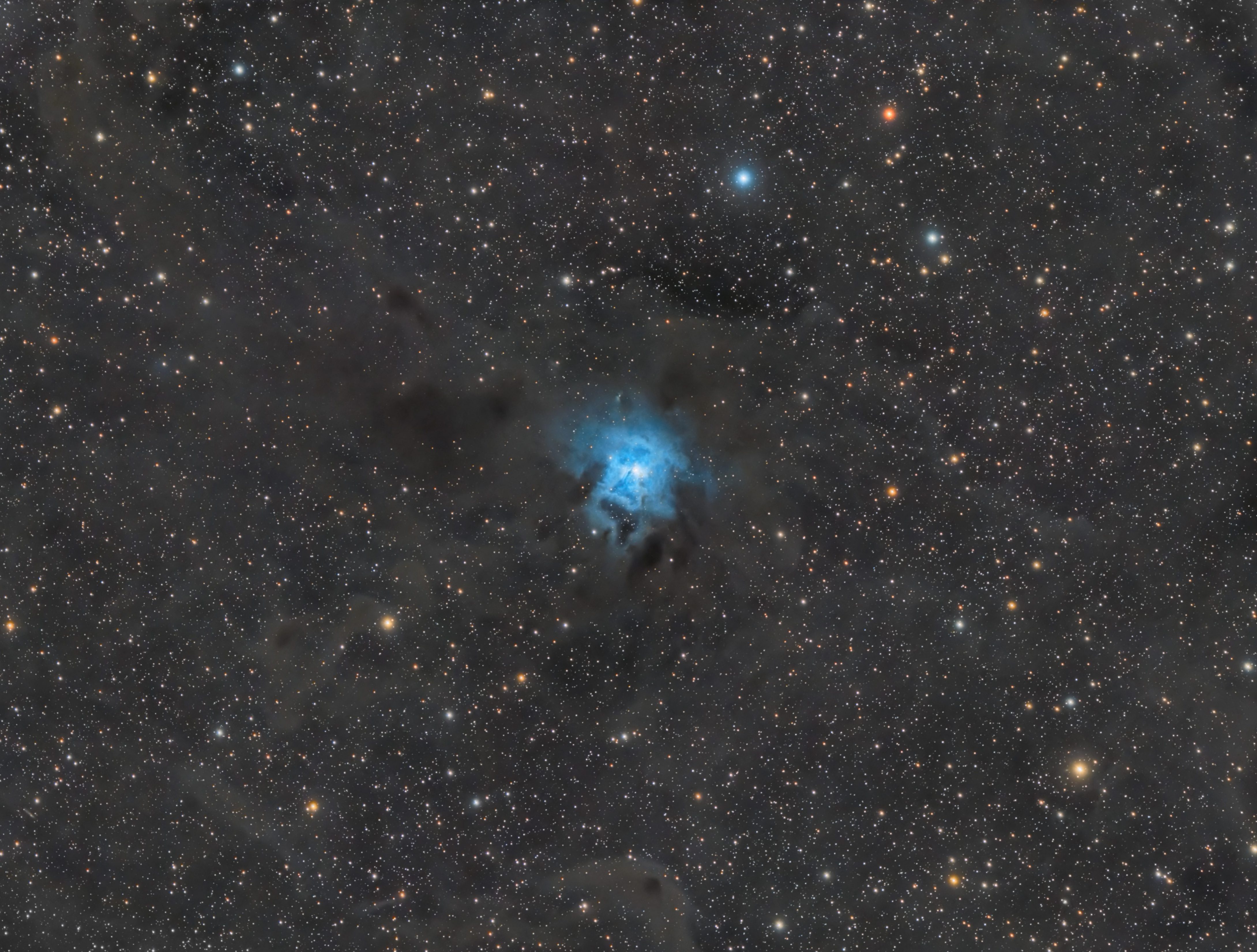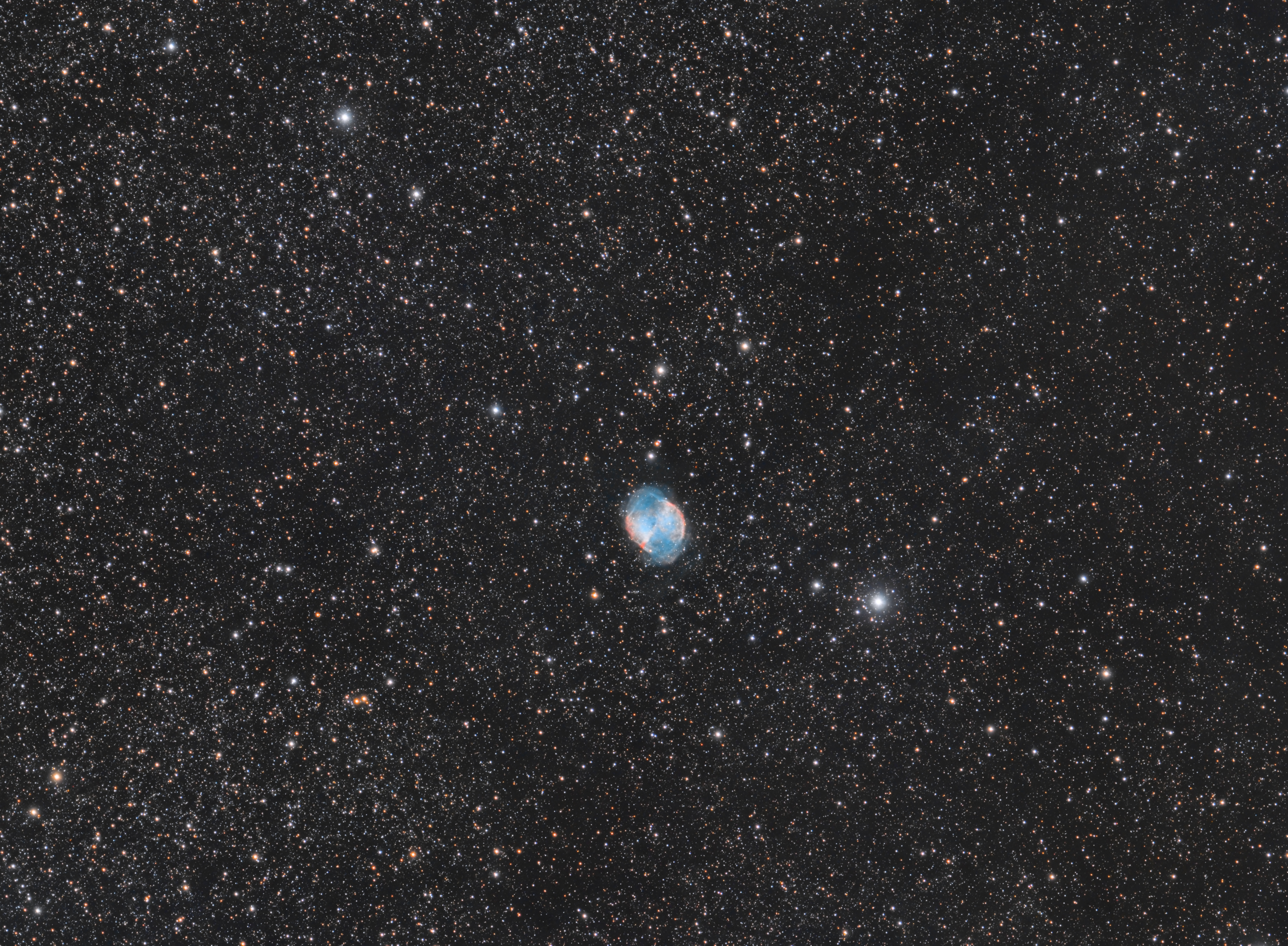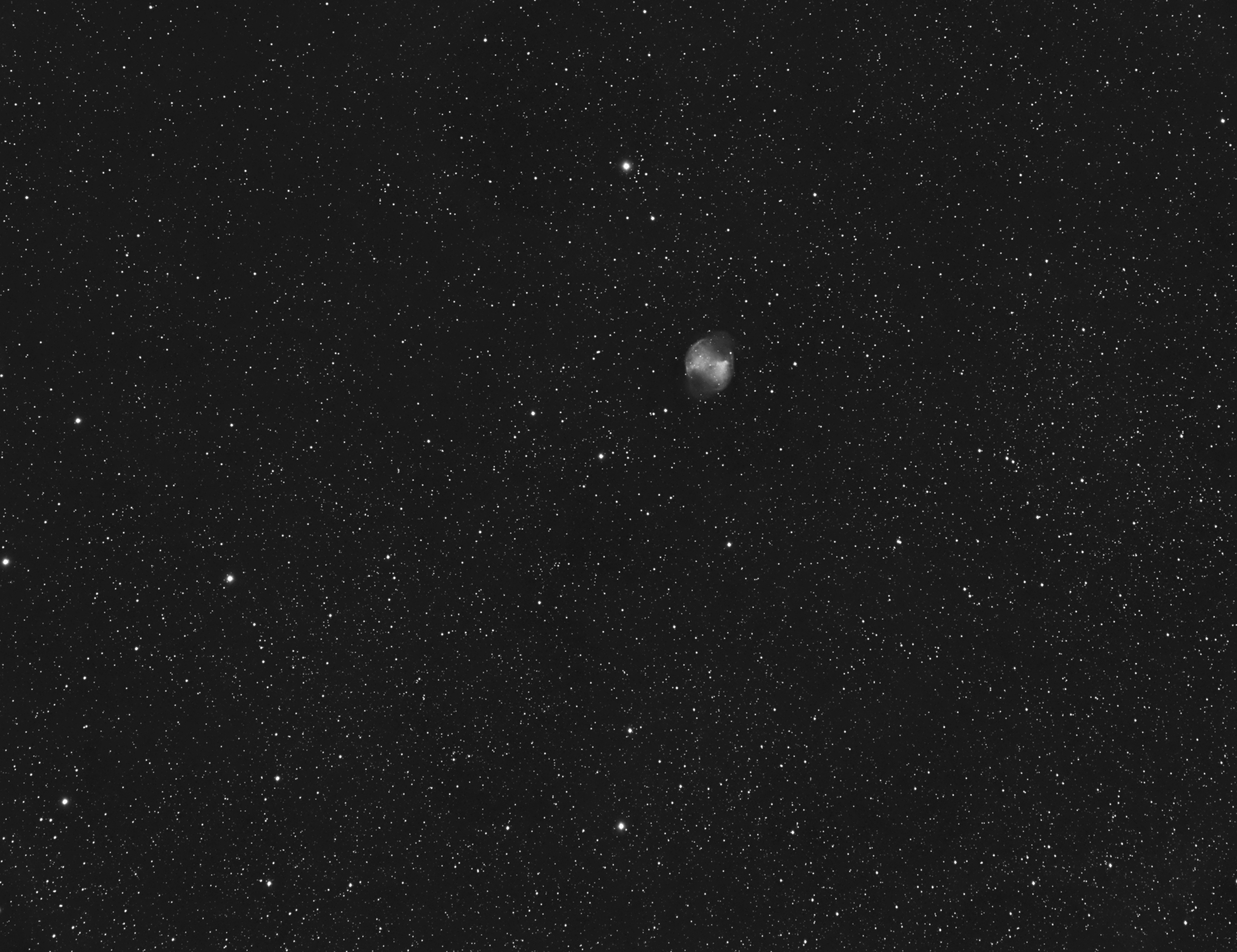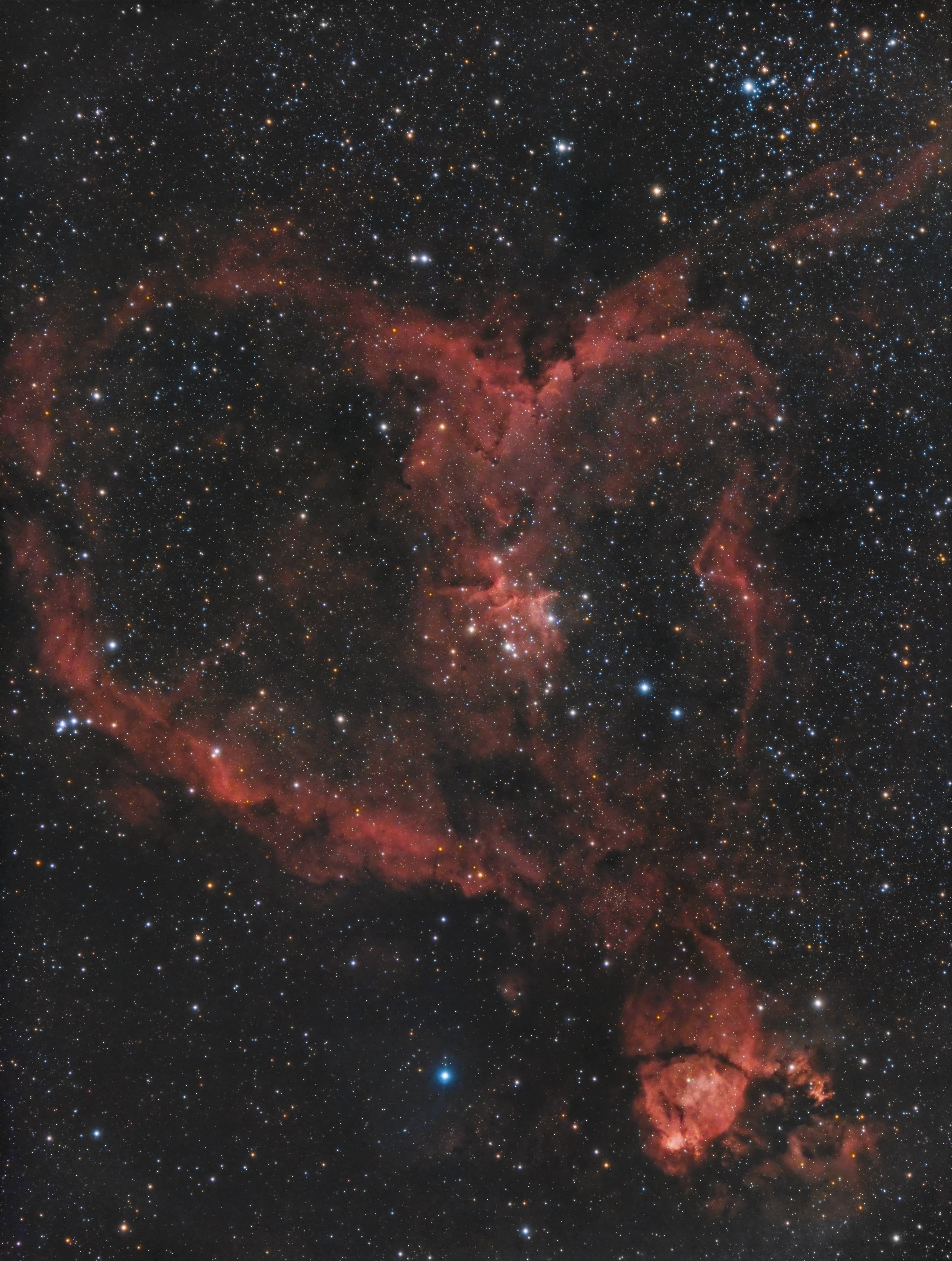
2016-10-04 21:00-03:30
Some low clouds, windy, 80% humidity, 5 degrees C
IC1805
Exposures Luminance:
90x30s+25x120s+20x240s LIGHT
100x240s DARK
200 BIAS
2015-12-13 17:30-21:00 (2 hours lost due to Canon driver issue with Windows 10 and USB 3.0 setting in VMWare Fusion 8.1.0)
Some low clouds followed by fog, no wind, -3 degrees C
IC1805
Exposures RGB:
9x480s LIGHT
60x480s DARK
200 BIAS
Camera L: ASI1600MM-COOL, IDAS LPS-D1, gain 77, offset 12, -20C
Camera RGB: Canon EOS-600Da, IDAS LPS-P2, ISO800
Lens: Sky-Watcher Esprit 80ED + Sky-Watcher field flattener
Mount: HEQ5 Pro
Skywatcher SynGuider auto guider and Celestron 80mm guide scope
Software: Sequence Generator Pro, BackyardEOS, PixInsight, Photoshop

